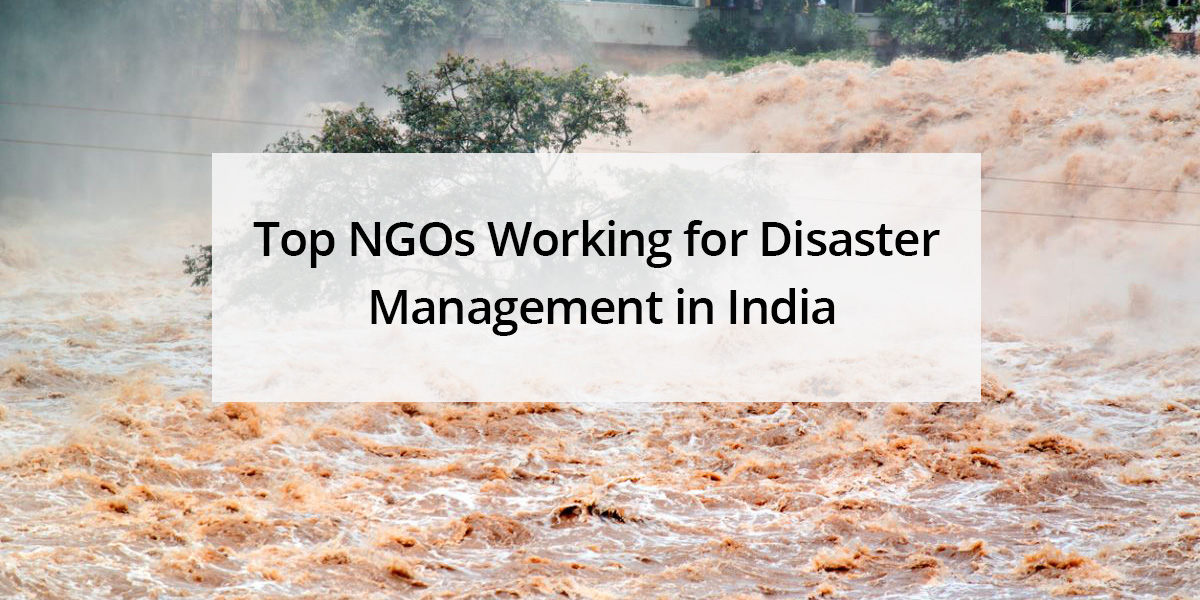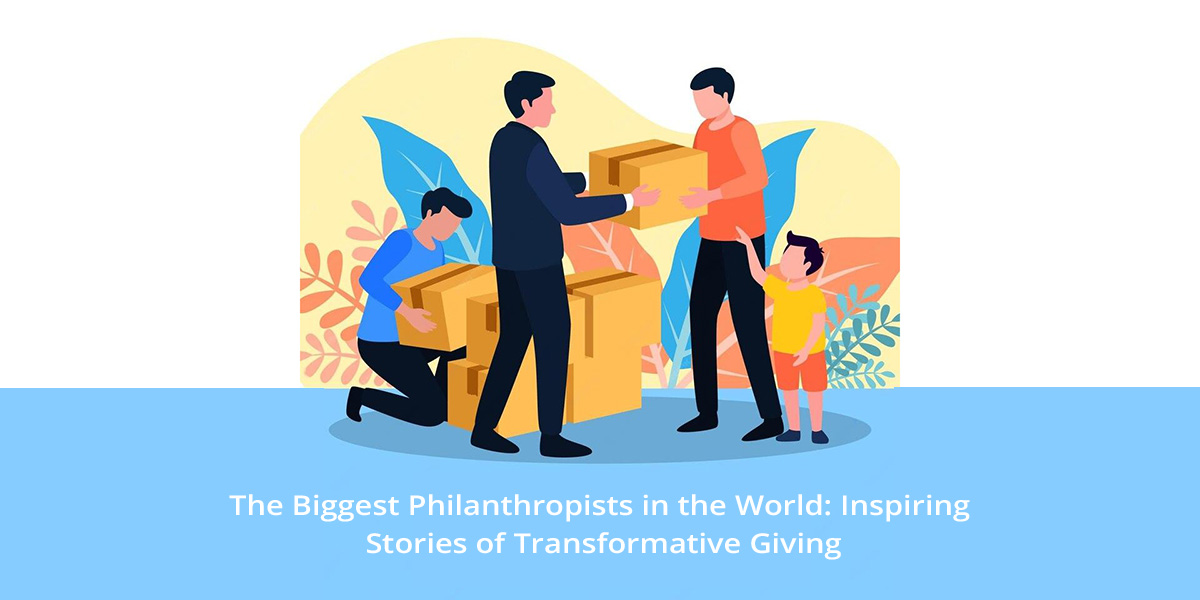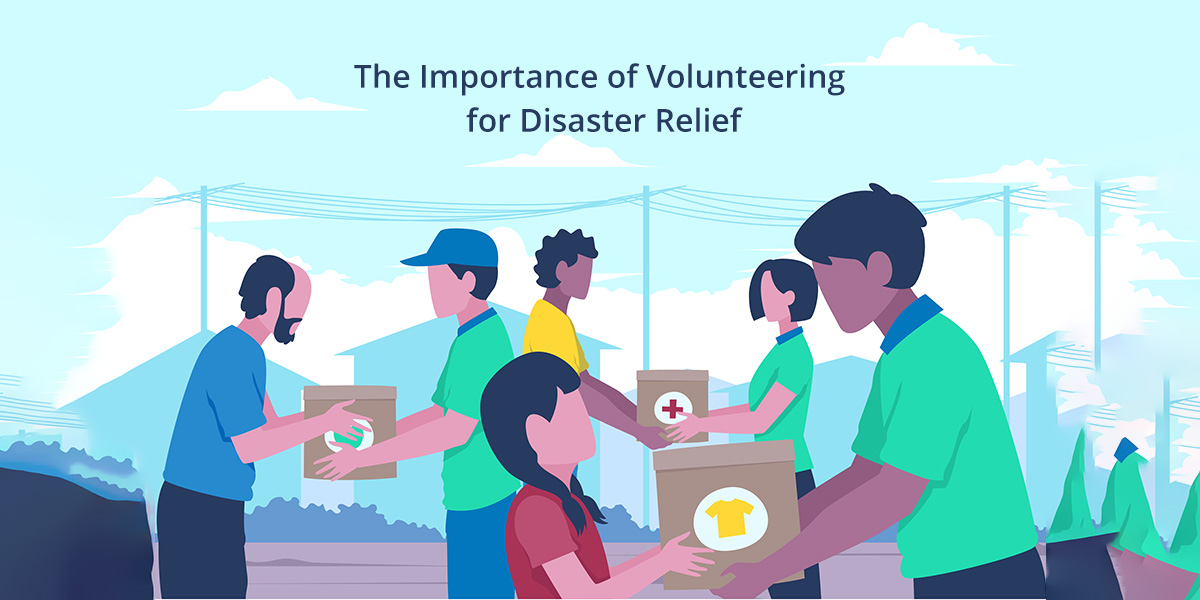Table of Contents
India is one of the world’s top diversity hotspots with a vast indigenous spread across the land. The country is also home to diverse terrain and a multitude of flora and fauna. Such an existence bears both pros and cons. One such con is the existence of natural and man-made disasters. This is the plight of every land on the map and when disaster strikes everybody loses.
India as a contemporary civilization also believes in disaster management. It is our duty as the superior race to take care of our own and the surrounding ecosystem.
Disaster Management NGOs
The entire concept behind disaster management arises from the need to conserve the life of any form and property during the occurrence of a man-made or natural disaster. Every disaster management program follows a certain course of action which normally has 4 quintessential actions that have been mentioned below:
- Mitigation
- Preparedness
- Response
- Recovery
These disaster management programs are usually conducted by government-run organizations, NGOs (Non-Government Organizations), NPOs (Non-Profit Organizations), etc. This particular article will be focusing on the NGOs and NPOs that operate outside the government infrastructure. Throughout the year there are many drives and events that are conducted by these organisations either to raise funds for a current crisis or to be prepared for any future crisis.
Why Disaster Management
A natural or manmade disaster lays heavy on everyone. It affects the surrounding flora and fauna along with the populous of that area. The main objective of disaster management is to provide relief to those people or animals that have suffered due to the disaster.
By enabling prompt and efficient rescue, relief, and rehabilitation at the disaster site, disaster management solutions can help remove people and property from a threatened place. This reduces property damage, protects people, and lessens trauma among people.
Reasons, why disaster management is important, have been briefly elucidated below:
- Saving lives of the human population as well as the surrounding flora and fauna.
- The entire act of disaster management is extremely crucial in building community resilience.
- Strengthens the security within all operations so as to prevent any future damage.
- Protection of natural resources is a very important reason to have a disaster management infrastructure in place.
- Promoting the prevention of diseases with mitigation steps already at play through proper legislation.
Top NGOs working for disaster management in India
1. Rapid Response – Rapid Response, India’s top and award-winning organisation, offers disaster response and preparedness services all throughout India. As a disaster relief organisation, they provide food, education, healthcare, livelihood, and housing programmes to help people survive and restore their lives.
2. Sakal Relief Fund – An NGO that has gained much traction over the last decade. The Sakal Relief fund is an initiative that was undertaken by a local Maharashtrian newspaper to help and support the underprivileged and unfortunate in this country and within their own state.
3. Care India – Care India is a non-profit organisation that helps communities create capacity in order to empower women and girls who are underprivileged or marginalized. Our long-term and comprehensive interventions in Health, Livelihood, Education, and Disaster Relief & Resilience offer creative answers to long-standing development issues.
4. Smile Foundation – Every year, the monsoons wreak havoc on Assam. However, the region is currently experiencing flooding and landslides as a result of exceptionally heavy pre-monsoon rainfall. The Smile Foundation has taken the initiative to offer dry meals, hygiene and sanitation kits, and critical kits to individuals in need.
5. HindRise – The HindRise organization is one of the biggest Indian NGOs that operate towards helping different marginalized sections of the vast and multicultural Indian society. Along with these development goals, the organization is also working towards helping animals and people who have suffered in various disasters within the country.
6. Help Age India – Help Age India has always been one of the finest bodies operating within the non-governmental sector with its goals set up in education, disaster relief, and mitigation, old-age services, etc.
Some other well-established NGOs in India have been mentioned below:
- Oxfam
- Actionaid India
- Goonj
- The Akshaya Patra Foundation
- Ram Krishna Mission
- Habitat for Humanity
- Ekam Foundation
- Society for a bright future
- Arpan
- Sai Andaman Nicobar Motivation and Education Trust
- Steps Aid India
- Island Development Organization
- Vivekananda Rural and Urban Development Association
- Navajeevan Rural Development Society
There are a wide variety of sections within this Indian society with philanthropy becoming a more prevalent activity in the urban regions. With proper legislation, NGOs have managed to set up and help to ease the burden of the common man that suffers most when disaster strikes.
The Role Of An NGO Is Disaster Management
First of all, it is important to note that NGOs are basically private citizens who have the resources and hold in the common interest to help the suffering populous in case of a disaster.
The role of a disaster management NGO has been briefly discussed within this section:
- Disaster response and mitigation is a very important role of such NGOs. It is only through the proper set-up of systems that coordination can be simplified and the disaster can be mitigated to a great extent.
- The response of NGOs in case of a disaster in terms of food relief, medical aid, shelter, and counselling plays a crucial part in resilience building and saving lives.
- The NGO networking helps create a quick response in case disaster hits.
- Providing relief to families, education to kids, and other forms of aid post-disaster is equally important and beneficial to the general populous.
- Setting up mock drills and other mitigation measures surely reduces the impact of the disaster.
Summary
The article delves into the aspect of disaster management with a keen focus on why disaster management is important and what are the roles of NGOs in disaster management. Along with the basic understanding of disaster management the article goes on to shed some light on some of the big names in this non-governmental organizations industry.
The objective of the article is to bring some of the top NGOs within the disaster management sector under the spotlight. Along with this, the article goes on to define the term disaster management and also elucidate why it is important and the role of NGOs in this field of philanthropy and social work, and justice. For more, you can log on to our company website and find the answers to any of your doubts and queries that may arise. Apart from other articles you can also help the cause and make a donation as you will find a link on the website that will direct you to the donations page. Help us make the change by being the change.







Post a Comment
You must be logged in to post a comment.